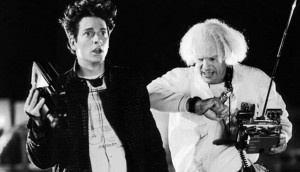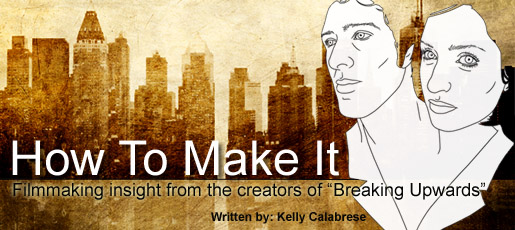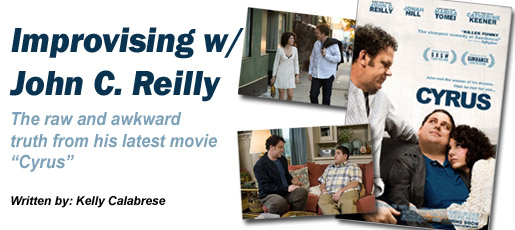Being an actor in the film industry can be an incredibly rewarding and fulfilling experience. However, success in this field requires a deep understanding of the expectations that directors have of their actors. This article aims to provide actors with valuable insights into what directors expect from them on set, ensuring a smooth and productive working relationship.
- Know Your Script and Character: The first and most important expectation directors have is that actors know their script inside and out. This means memorizing lines, understanding the story, and fully immersing yourself in your character. Directors appreciate actors who come prepared and ready to contribute to the creative process. Be prepared to analyze and discuss your character with the director to ensure a shared vision.
- Be Punctual and Professional: Time is money in the film industry, and directors expect their actors to respect this by being punctual and professional at all times. Arriving on time to set, rehearsals, and meetings is essential. Moreover, maintaining a positive attitude and treating everyone on set with respect will create a productive environment for everyone involved.
- Be Receptive to Direction: Directors have a vision for their film, and actors are an essential part of bringing that vision to life. It is crucial for actors to be open to feedback, suggestions, and direction from the director. Always be willing to try new approaches, and don’t be afraid to ask questions if you’re unsure of what the director is looking for.
- Master the Art of Continuity: In film, scenes are rarely shot in chronological order. As an actor, it’s important to be mindful of continuity to ensure consistency in your performance. Directors expect actors to be aware of their physicality, emotions, and energy levels in each scene to maintain continuity throughout the film.
- Understand Technical Aspects: While the director and crew handle the majority of technical aspects of a film, actors should have a basic understanding of filmmaking techniques. Familiarize yourself with terms like “marks,” “blocking,” and “camera angles.” This knowledge will help you collaborate more effectively with the director and crew and ensure that your performance is captured in the best possible way.
- Be Adaptable and Flexible: Filmmaking is an unpredictable process, and things can change at a moment’s notice. Directors appreciate actors who can adapt to new situations, whether it’s a last-minute script change, a different shooting location, or an unforeseen challenge on set. Demonstrating flexibility and a willingness to go with the flow will endear you to directors and make you a sought-after talent.
- Take Care of Yourself Physically and Emotionally: Acting can be physically and emotionally demanding, and directors expect their actors to maintain their well-being throughout the production process. This includes getting adequate sleep, eating well, and staying physically fit. It’s also essential to manage stress and maintain a healthy work-life balance to ensure peak performance on set.
Conclusion: Understanding what directors expect from their actors is crucial for success in the film industry. By being prepared, punctual, receptive to direction, adaptable, and taking care of your well-being, you will create a positive and productive working relationship with your director, helping to bring their vision to life on the big screen.
Here are several instances of actors being substituted in a role at the discretion of the director:
 Eric Stoltz in “Back to the Future” (1985): Eric Stoltz was initially cast as Marty McFly in the iconic film “Back to the Future.” However, after several weeks of shooting, director Robert Zemeckis decided that Stoltz’s performance wasn’t capturing the lighthearted comedic tone he was looking for in the character. Ultimately, Stoltz was replaced by Michael J. Fox, who went on to make the role his own.
Eric Stoltz in “Back to the Future” (1985): Eric Stoltz was initially cast as Marty McFly in the iconic film “Back to the Future.” However, after several weeks of shooting, director Robert Zemeckis decided that Stoltz’s performance wasn’t capturing the lighthearted comedic tone he was looking for in the character. Ultimately, Stoltz was replaced by Michael J. Fox, who went on to make the role his own.- Anne Hathaway in “Knocked Up” (2007): Anne Hathaway was originally cast as the lead in Judd Apatow’s comedy “Knocked Up.” However, she left the project due to creative differences with the director. Hathaway was uncomfortable with the graphic nature of the childbirth scene, which Apatow insisted on keeping. Katherine Heigl was later cast in the role.
- Harvey Keitel in “Apocalypse Now” (1979): Harvey Keitel was initially cast as Captain Willard in Francis Ford Coppola’s “Apocalypse Now.” However, after a few weeks of shooting, Coppola decided to replace Keitel with Martin Sheen. The director felt that Keitel’s performance was too forceful and intense for the introspective and troubled character he had envisioned.
- James Remar in “Aliens” (1986): James Remar was originally cast as Corporal Hicks in James Cameron’s sci-fi classic “Aliens.” However, Remar was fired from the film due to creative differences and personal issues, including a drug-related arrest. Michael Biehn went on to take over the role of Hicks.
- Megan Fox in “Transformers: Dark of the Moon” (2011): Megan Fox played Mikaela Banes in the first two installments of Michael Bay’s “Transformers” series. However, she was not brought back for the third film due to a falling out with the director. Fox had made controversial comments comparing Bay to Adolf Hitler, which ultimately led to her dismissal from the project. Rosie Huntington-Whiteley was cast as the new female lead in the film.
These examples highlight the importance of maintaining a good working relationship with directors and being open to their vision for a film. Actors should be prepared to adapt their performances, maintain professionalism, and work collaboratively with the director to ensure a successful production.







